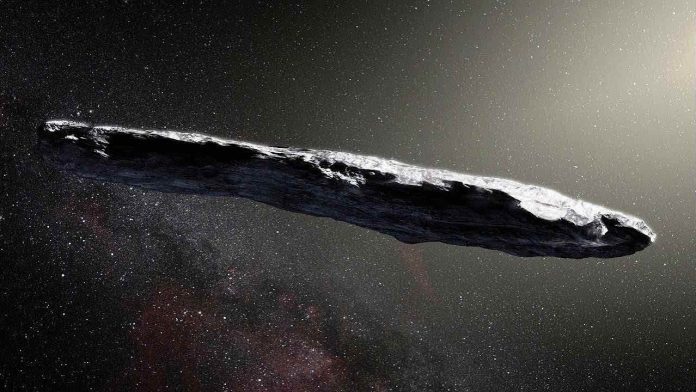Scientists have discovered the first “interstellar immigrant” to our solar system.
The asteroid, known as 2015 BZ509, has been in this peculiar backward orbit around the sun ever since getting sucked into our solar system, the researchers said. About 2 miles across, it joined our neighborhood in the first moments after our solar system formed 4.5 billion years ago. The French and Brazilian researchers base their finding on extensive computer simulations showing BZ always has orbited around the sun in reverse and thus harkens back to the beginning of our solar system.
The results, published in the journal Royal Astronomical Society, come several months after the discovery of our first known interstellar visitor, a smaller asteroid named Oumuamua “Oumuamua is of interstellar origin but it is also only a tourist passing by our solar system,” said lead author Fathi Namouni of the University of Cote d’Azur in Nice, France. “BZ is not. It is a bona fide immigrant and the notion of immigration is a hot topic nowadays all over the world!” It’s extremely unlikely—”practically zero”—that BZ came from the same star system as Oumuamua, according to Namouni. By identifying more immigrant asteroids, Namouni said, scientists can determine their composition. If BZ contains water, for example, researchers can compare it with Earth’s water and, perhaps, better understand how water originated here at home.















